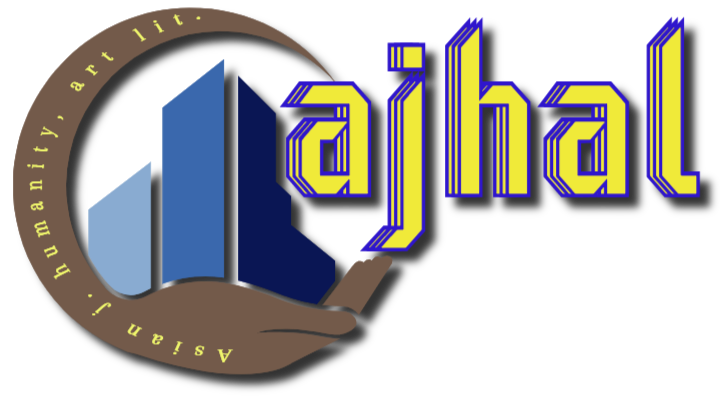Oral Literature and Transculturality: A Study of Contemporary Cameroonian Songs
Littérature orale et transculturalité : une étude des chansons contemporaines camerounaises
DOI:
https://doi.org/10.18034/ajhal.v8i1.573Keywords:
hybridity, cultural identity, culture transfer, traditionAbstract
Globalization led by Europe has spread so-called 'universal' values across the globe, which seems to have cultural intermingling as its backdrop. All human endeavors are based on a culture that has become multidimensional. All the time, in their diversity, cultures try to complement and absorb each other. However, in this meeting of cultural giving and receiving, it takes on a new face, the culture shock. This encounter causes major changes in our modern societies, giving way to a loss of cultural identity and internal imbalance. This article aims to analyze the way in which contemporary Cameroonian musicians use cultural and linguistic facts for communication purposes and other arguments. The aim of our work is to show how the various songwriters have found, through song, a new mode of resistance so that African traditions escape sedimentation. In this way, they reconcile the elements of oral tradition and the contributions of modernity to create a hybrid product. To illustrate our point, we have chosen oral texts from different regions of Cameroon. In order to better understand the transcultural reality in the texts, we will highlight the marks of traditional and modern aesthetics, then show that the transcultural is seen as a space of symbiosis between the traditional and the modern.
Downloads
References
Atechi, S et Fonka, H, (2006), «pidgin English in Cameroun: to teach or not to teach?», a paper presented during the international conference of language, Literature and education in Yaoundé, 11-14 March.
Biloa, Edmond, (2006), Le français en contact avec l’anglais au Cameroun, Munchen, Lincon.
Edward Said, (2000), Culture et impérialisme, Paris, Fayard- le monde diplomatique.
Histoire de l’humanité, (1984), « 50 ans de musique du Congo Zaire », in Unesco, Presence Africaine, Vol.I, P.16.
Laburthe tolra, P. J. Pierre, (1993), Ethnologie Anthropologie, Paris, PUF.
Laplantine, Francois & Alexis Nouss, (1994), Le métissage, Paris, Flammarion.
Mudimbe V.Y (1982), L'Odeur du Père. Essai sur des limites de la science et de la vie en Afrique Noire, Paris, Présence africaine.
Pie Xii, (1956), L'éducation, la science et la culture, Paris, Fleurus.
Simbananiye, Léandre, (2005), « Les Noms de Personnes au Burundi. Un support du Lien Social », Anthropologie et Sociétés, Université de Laval, Volume 29, n°1, P.
Simbananiye, Léandre, (2005), « Les Noms de Personnes au Burundi. Un support du Lien Social », Anthropologie et Sociétés, Université de Laval, Volume 29, n°1, P. DOI: https://doi.org/10.7202/011745ar
Tran van khe, (1973), « Les musiques d'Orient malades du Juke-Box », in Unesco, le courrier, pp. 6-12.
Turgeon L., (2004), « Les mots pour dire les métissages: jeux et enjeux d’un lexique », in L’horizon anthropologique des transferts culturels, numéro spécial de Revue germanique internationale, 21, Presses universitaires de France, p. 53-69. DOI: https://doi.org/10.4000/rgi.996
--0--















